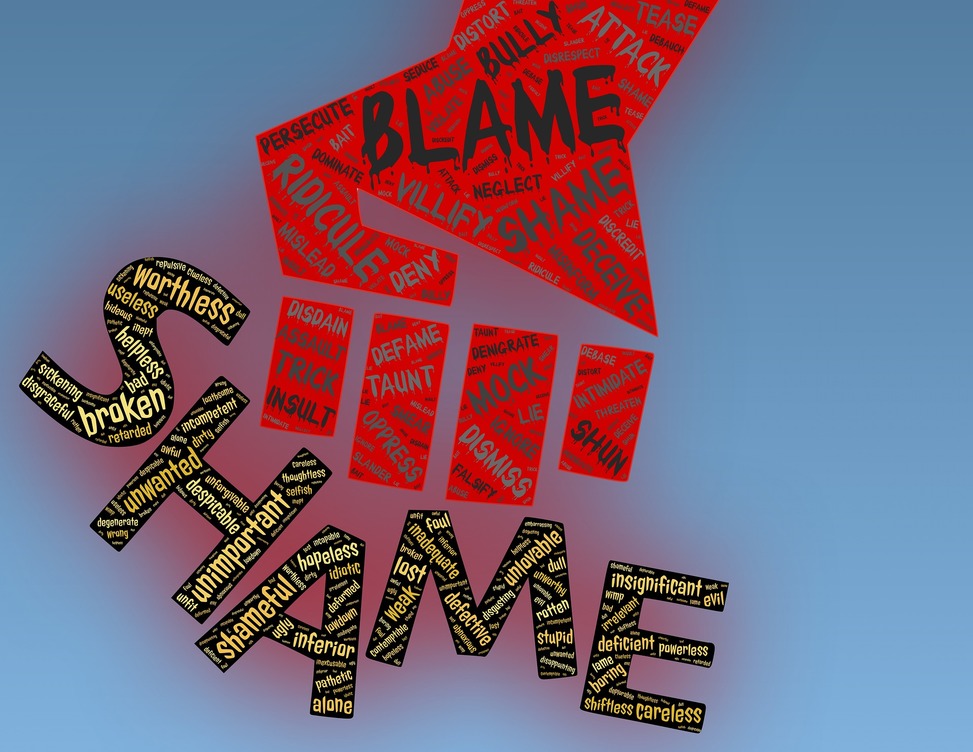You Oughta Be Ashamed of Yourself!

Replacing the word “judging” with “shaming” reveals the effects. In reality, there’s not much difference. Judging by definition means to come to a conclusion about, or to form an opinion about someone. To give a verdict on someone. Shaming by definition means to take someone down a peg or two, cut them down to size, make them feel ashamed. Isn’t that in a sense what judging will produce?
*This post originally appeared on our Member Site blog, featuring guest authors like Annie Highwater, and where experts respond daily to members’ questions and concerns. To take advantage of our current special offer and get full access to the Allies in Recovery eLearning program for families, click here.
I have come to see accountability as one thing, shaming as quite another. Unless one is in a court of law facing a prosecutor, before a judge or jury, one should not have to go to great lengths to defend oneself. Even then, one does not deserve to be shamed. Accountable, given boundaries and consequences? Absolutely. Condemned and shamed? Absolutely not.
Coming from a culture of shame, one in which blame was quickly assigned for any negative incident, it would be easy for me to accept it as normal. The temptation was there to continue surrounding myself with blame and shame. Or to wait until I was pinned down and made to feel doomed and damned, and only then allow anger to surface.
I have addiction and religious dysfunction in my background and family; I also have enabling and codependency. All can surge from a place of shame or fear. Accusations, condemnation and guilt are ever present. Decisions made out of these dynamics are never good or healthy ones. Never wise or functional. And never do they promote peace, harmony or health.
Shame inevitably produces one thing: more shame
Shame begets shame. If I shame somebody for their behavior, chances are they will feel ashamed and turn it back on me as the cause. Or perhaps they’ll remind me that I should look into my own flawed life.
By the same token, when I am made to feel ashamed, it doesn’t promote anything good from me either. It doesn’t motivate or inspire, it makes me feel even more worthless, angry, withdrawn.
Shame begets shame begets shame
So what is the solution, when accountability is necessary, and behaviors do need to change or reroute? Well, not shame.
Positive reinforcement, as basic and childlike as that sounds, is a motivating force for progress. Speaking to someone’s goodness despite their wrong choices unlocks their worth. “You’re not a bad person, you’re just headed in a bad direction.” Or maybe “You shouldn’t be ashamed of yourself, maybe just aware of faulty patterns so you can choose different ones.” That’s a great way to start motivating someone. Versus, “I told you so, you ought to be ashamed of yourself.”
Nothing good comes from walking in shame
I don’t find my way to light, hope, peace or accomplishment. Rather, I find my way to downtrodden darkness, more mistakes, failures and worthlessness. I don’t need anyone to remind me of my deficiencies or failures, I have my own internal narrator, quick to remind me.
Speak hope, and encouragement: “You can do this and if you can’t, we’ll do it together because you matter!” will speak right to the fire in one’s soul. There is enough in life to shame us, I’d rather be counted with those whose actions are non-shaming—even if I believe there can sometimes be something useful in being judged. I’d rather stand in the shoes of kindness, compassion and encouragement. I believe that is what promotes progress. Shame produces more shame.
Peace, harmony and progress to you always,
Annie
Since 2003, Allies in Recovery has addressed substance abuse in families by providing a method for the family to change the conversation about addiction. We use Community Reinforcement & Family Training (CRAFT), a proven approach that helps the family unblock and advance the relationship towards sobriety and recovery and to engage a loved one into treatment. Learn about member benefits by following this link.
